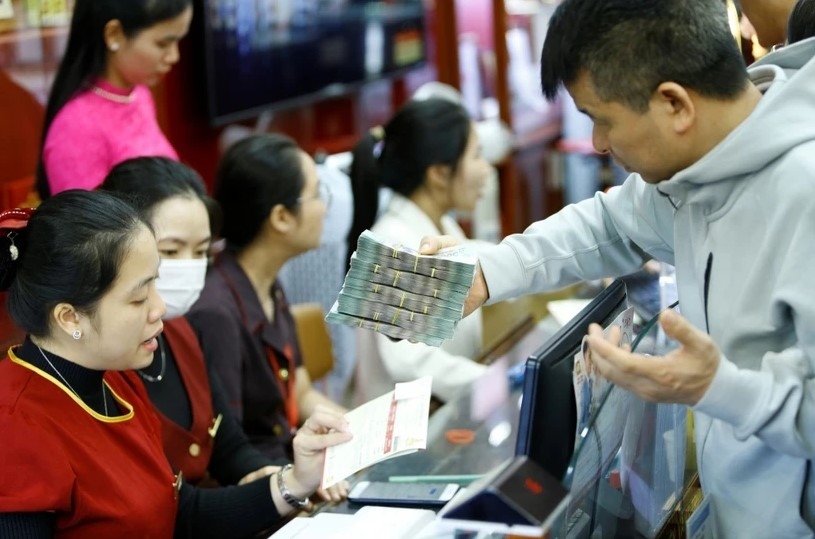Central bank to inspect gold trading activities
The State Bank of Vietnam (SBV) on May 17 issued a decision to inspect the compliance with policies and laws in gold trading activities of credit institutions and gold trading enterprises.
The inspection period spans from January 1, 2020, to May 15, 2024, encompassing adherence to legal regulations concerning gold trading, including anti-money laundering, accounting and invoicing practices, tax declaration and fulfillment. Inspections may be extended to the time before or after the specified period if deemed necessary.
The inspection team will operate for 45 days in accordance with the Inspection Law and other relevant regulations.
This decision aligns with the Prime Minister’s official dispatch on strengthening measures for gold market management, and the Directive on monetary policy management for 2024, with a focus on tackling difficulties in production and trade, promoting growth and ensuring macro-economic stability.
Since April 19, the SBV has held seven auctions to sell SJC-branded gold bars, aiming to increase supply for the market. Four of them were conducted successfully, with a total winning bid volume of 27,200 taels, or about 1.02 tonnes.
The central bank is set to organise two additional gold auctions on May 21 and 23, with a minimum bid of 500 taels and a maximum of 4,000 taels. The total volume of gold available in both auctions will remain at 16,800 taels.



